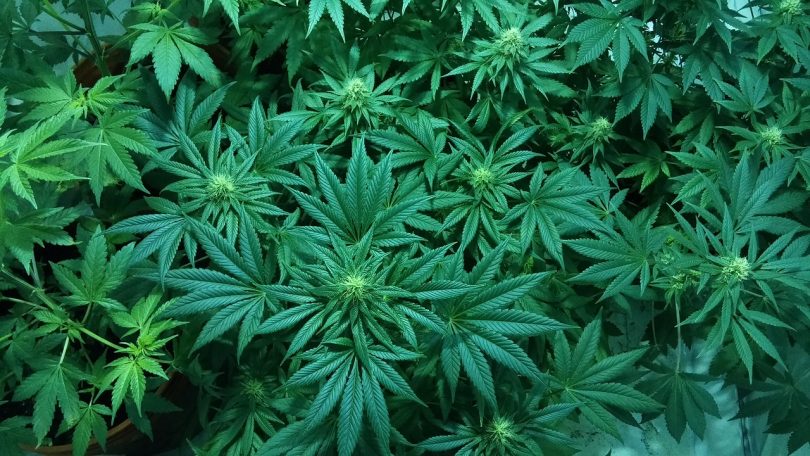By Prithvi G. Tikhe
BU News Service
This article was originally published in the Telegram.
BOSTON — The wait continues.
The opening of the state’s first recreational pot shops is still up in the air, but it is clear Worcester will play a central role in the budding industry.
During a recent Cannabis Control Commission meeting regulators said final inspections of prospective marijuana businesses have commenced. However, no date was confirmed for the start of recreational marijuana sales.
CCC Chairman Steven Hoffman declined to speculate when the first shops might open, adding he was hopeful it would happen sometime in the fall. He said there was a “distinct possibility” the commission could issue final licenses at its next public meeting on Thursday. (The date of the meeting has been corrected.)
Massachusetts voters legalized marijuana for recreational use and retail sales in November 2016, effective Jan. 1, 2018, but the state Legislature delayed the start date to July 1. That delay irked the law’s supporters.
“The illicit, tax free, unregulated (cannabis) market is grateful,” said Maggie Kinsella, spokeswoman for the Massachusetts Cannabis Reform Coalition.
Although the CCC approved licenses on Aug. 23 for two medical marijuana testing labs — CDX Analytics and MCR Labs — to analyze products for recreational sales, retail cannabis businesses cannot sell the drug legally without testing.
So far, 40 of the 143 recreational license applications submitted come from Worcester County, the most from any single county in the state, according to the CCC. Prospective marijuana business representatives speculate the region is emerging as the hub for the marijuana industry in Massachusetts because of its central location, availability of relatively cheap real estate, and underused industrial space.
Mr. Hoffman defended the panel as being thorough in its review of applicants to ensure safety and compliance with all regulations, while recognizing the frustration that consumers were feeling and the disappointment of the industry about the slow rollout of recreational marijuana sales.
The chief financial officer of a planned Worcester center agreed.
“If a license is given to a negligent operator who sells cannabis to a minor then that will negatively impact the industry as a whole,” said Colonel Boothe, who is also director of cultivation and co-founder of Holistic Health Group, which is looking to open a mixed marijuana dispensary and cultivation center at 3 Coes Square in Worcester.
However, he said that the slow rollout will delay Worcester’s possible increase in tax revenue since there will be no collection of the 3 percent local sales tax on cannabis until shops open.
On Sept. 20, the panel approved provisional retail licenses for marijuana stores in Ayer, Hudson, Pittsfield and Salisbury. The number of retailers with provisional licenses since July 1 is now 15, but none can begin selling recreational marijuana until final licenses are issued.
Businesses must pass inspection by the CCC and all its employees must register with the state before a final license can be granted. Although Mr. Hoffman did not know the results of the first inspections, he said the process was moving forward.
State Rep. Hannah Kane, R-Shrewsbury, the ranking minority member on the Legislature’s Committee on Marijuana Policy, said the documented negative impact on children in other states where marijuana has been legalized leads many in Massachusetts to believe there will be higher use rates by people younger than 21. It is one of the chief reasons the Legislature agreed to strict marketing and labeling restrictions, she said.
However, Mr. Boothe argued the notion of dispensaries negatively affecting children is unfounded.
“Cannabis dispensaries that are open in other states have led to a 24 percent reduction in the opioid mortality rate in those areas,” he said.
The Cannabis Coalition’s Ms. Kinsella shared a similar view and was curious how a shop that needs an ID will negatively affect youth.
“Right now, those youth have access to a dealer who will not ID them, who are eating Tide pods and doing other online challenges, most, if not all, of which are more dangerous than weed,” she said.
Central Massachusetts will play another significant role in the new industry.
GFA Federal Credit Union of Gardner is the first financial institution to offer banking services to marijuana businesses in Massachusetts. Mr. Hoffman said it was an “incredibly significant” decision and he urged other banks to follow GFA’s lead.
Ms. Kane stressed that the lack of banking for the cannabis industry and the complexities with federal banking law was one of the many reasons she opposed the legalization of recreational marijuana.
“The all cash business is a serious public safety concern,” she said.
According to Mr. Boothe, cannabis businesses will rely on vaults and third-party cash storage companies to help secure money. It does add “a layer of dangerousness” to the industry, but this “issue is temporary.” He hopes as time goes on more banks will allow cannabis sales funds.
But Ms. Kinsella contested that the industry has not had any issues with medical marijuana operating as cash-only sales so far.
“The state treating cannabis like plutonium with driving protocols has proven no increased risk to the best of my knowledge,” she said.
No matter when the first pot shops open, they will be the first in the eastern United States. But Mr. Boothe believes the delays could have been avoided.
“I believe the CCC is drastically understaffed which is why some applications aren’t being reviewed for over a month,” Mr. Boothe said. “The state could have allocated additional resources to help the rollout move faster, but they chose not to.”




